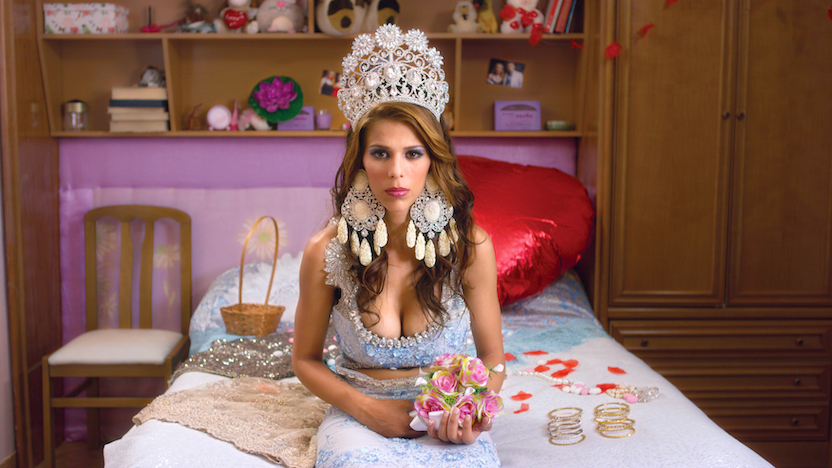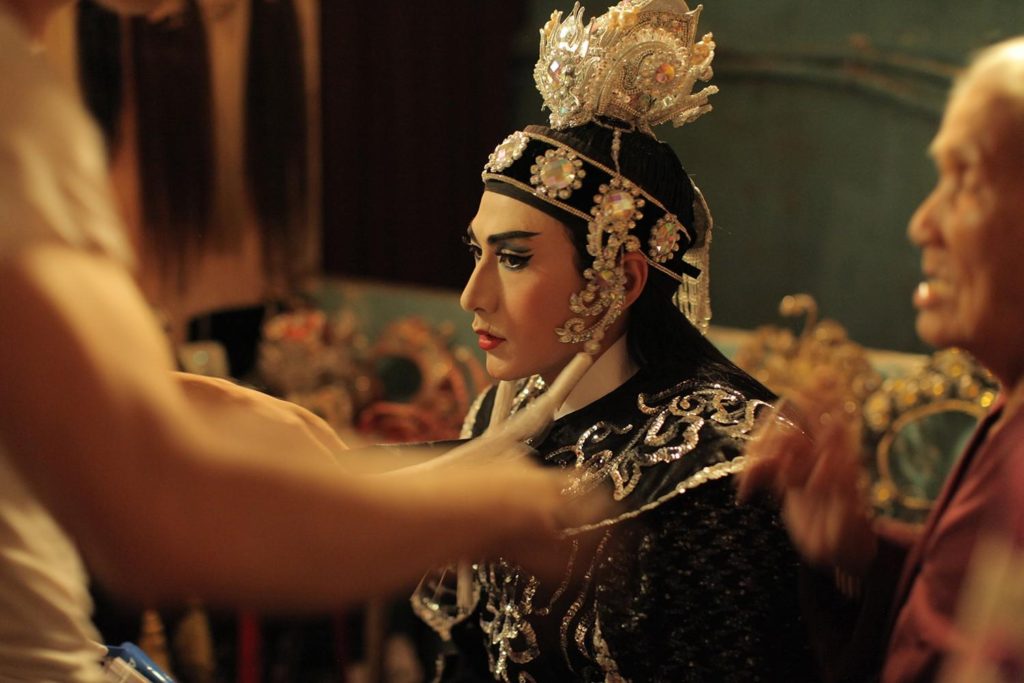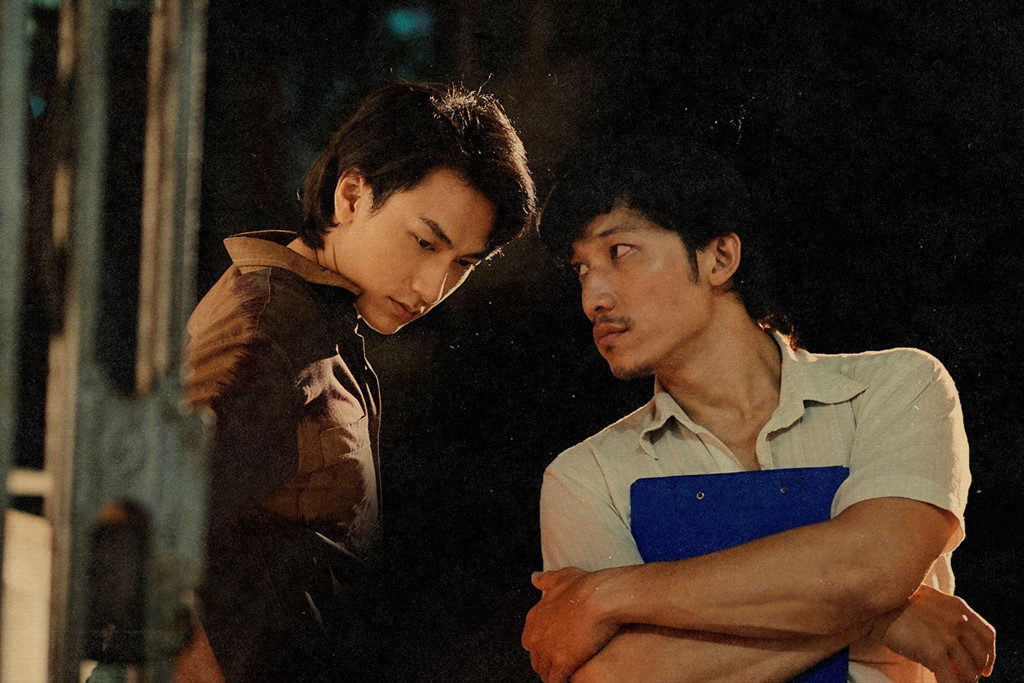
In the ambitious and innovative Monsters., writer-director Marius Olteanu unspools his story one chapter at a time. First we follow Dana (Judith State), a morose woman whose behavior is bewildering her cab driver – and the audience. In the second chapter, we meet two men, one of them Arthur (Christian Popa), and try to figure out the connection to the first chapter. The third and final chapter weaves the stories together into a romantic tragedy. (And, yes, there is a period in the film’s title.)
[MILD SPOILER: The movie is about a couple in love who want to have a conventional marriage, but whose relationship cannot succeed in that form.]
Monsters. is Olteanu’s feature film debut. Stylistically, Monsters. is typical of Romanian Slow Cinema, long takes and all, and it depicts a 24-hour story in under two hours.
Olteanu is an ambitious and fearless filmmaker. The beginning and most of Monsters. is in an unfamiliar, vertical aspect ratio; right away, we know that we’re watching something different. And, just when we’ve settled in, Olteanu CHANGES the aspect ratio to make points about the content. This dynamic aspect ratio and the film’s structure are self-conscious, but it’s clear that Oltenau is aspirational and innovative. I’m looking forward to what he has in store for us next.
Both lead actors are very good. State is up to the challenge of playing a sad character who is always aggrieved without becoming tiresome. Serban Pavlu is especially excellent as an off-puttingly meticulous Grindr hookup.
Frameline hosts the North American premiere of Monsters..




